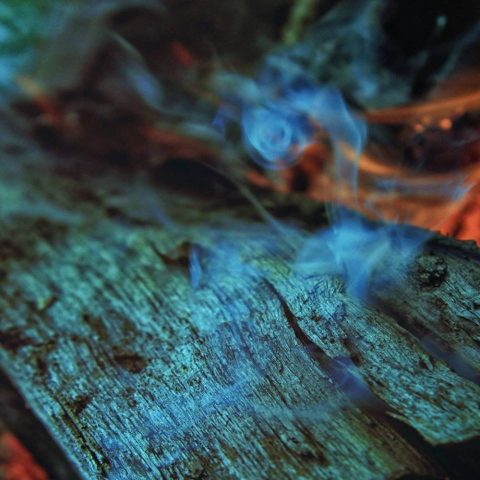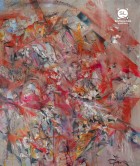For a long time, I ran a contest that explored the “fine line” between prose poetry and short-shorts. This piece would have been a very strong contender because of how it straddles the line and could be either. How do you position it, genre-wise, and what was your strategy for distilling it to a poem?
Many of my favorite poems tell a story, and many of my favorite short-shorts are more about capturing a moment or an idea than taking the reader through a traditional narrative arc. I often submit the same piece to submission calls in both fiction and poetry because I frequently straddle that line. This one feels like a short-short to me because I was attempting to tell a tall tale that explains the prevalence of kudzu through the way that murdered-girl stories wind their tendrils through our collective imaginations. The cadence of the piece came from murder ballads, though, which are poems, so what is it genre-wise? I guess whatever you want it to be! (Also, that sounds like such a fun contest!)
This feels like it’s based on a true story. Could you illuminate where this comes from?
It’s completely based on a true story that has haunted me since I read it. Pearl Bryan was murdered and decapitated in 1896 by her “lover,” following an unsuccessful abortion attempt. Her head was never found, and people came from far and wide with their families to visit the murder site and collect souvenirs—leaves splattered with what looked like blood, bits of cloth, etc. It was a Sunday-after-church activity! Her murder also spawned many, many ballads. All the statements by her mother, father, and doctor in this piece are taken verbatim from contemporaneous reports, and they highlight tropes about gender and violence that I find fascinatingly disturbing and relevant even today.
I love the language in this piece—the subtle hard consonance, the repetition, the rhythms. It has me interested in the question of how sound happens in the writing process. Do you polish a draft in an intentional way, or do sonic factors drive the composing?
I focus so, so, so much on sound. I read everything out loud multiple times and make so many little changes. Rhythm is extremely important to me, as both a reader and a writer. This piece was blending direct speech from the late 1800s with the cadence of tall tales and of murder ballads, so it was truly all about the rhythm. I usually read poetry before sitting down to write prose, and I don’t see a hard line between the two forms; I always want my prose to read like poetry.
Kudzu has a way of completely taking over a landscape. What kind of figurative kudzu do you notice around you—in your life, in the culture, or what have you?
I’m working on two projects right now—a novel that involves murder ballads, medicine shows, and myths of the American West, and a short story collection that deals with invasives, ecological and otherwise. So I’ve been thinking about this question a lot! In terms of figurative kudzu, many of my characters are dealing with self-doubt and a sense that life isn’t turning out as they think it should. Many of my characters are dealing with the kudzu of pervasive, persistent expectations that are placed on women, especially those surrounding motherhood—becoming a mother, being the right kind of mother, justifying the decision not to have children, struggling not to become your own mother, and so on. Often the body can feel unruly, like kudzu—cysts and sweat, infertility and unwanted urges. I’m endlessly interested in people’s attempts to deal with the messiness of their lives and themselves. That’s the stuff of stories, right? As for the culture, there’s a whole lot of hateful, harmful kudzu right now, and a whole lot of it is coming from the White House, and let’s just say it’s easier to vote than it is to get rid of kudzu. So, at the very least, VOTE. It won’t fix the mess we’re in, but it’s a vital step.
Back to the story: What’s your conception of the afterlife and what should the afterlife be?
I guess all I know is that we become the stories people tell, the pictures they pass around at family dinners, and the artifacts we leave behind. I hope that we all get to live on as complete stories—not just the stories of how we died, of how we fit into a familiar narrative. I hope we become more than just a ballad or a cautionary tale. But I mean, I also hope if there’s some kind of literal afterlife, it’s full of cats and dogs, Thai food and tacos, and the people we love, so we can love them forever and ever. Oh, and books. Lots and lots of books, of course.



 The core workshop of SmokeLong Fitness is all in writing, so you can take part from anywhere at anytime. We are excited about creating a supportive, consistent and structured environment for flash writers to work on their craft in a community. We are thrilled and proud to say that our workshop participants have won, placed, or been listed in every major flash competition. Community works.
The core workshop of SmokeLong Fitness is all in writing, so you can take part from anywhere at anytime. We are excited about creating a supportive, consistent and structured environment for flash writers to work on their craft in a community. We are thrilled and proud to say that our workshop participants have won, placed, or been listed in every major flash competition. Community works.